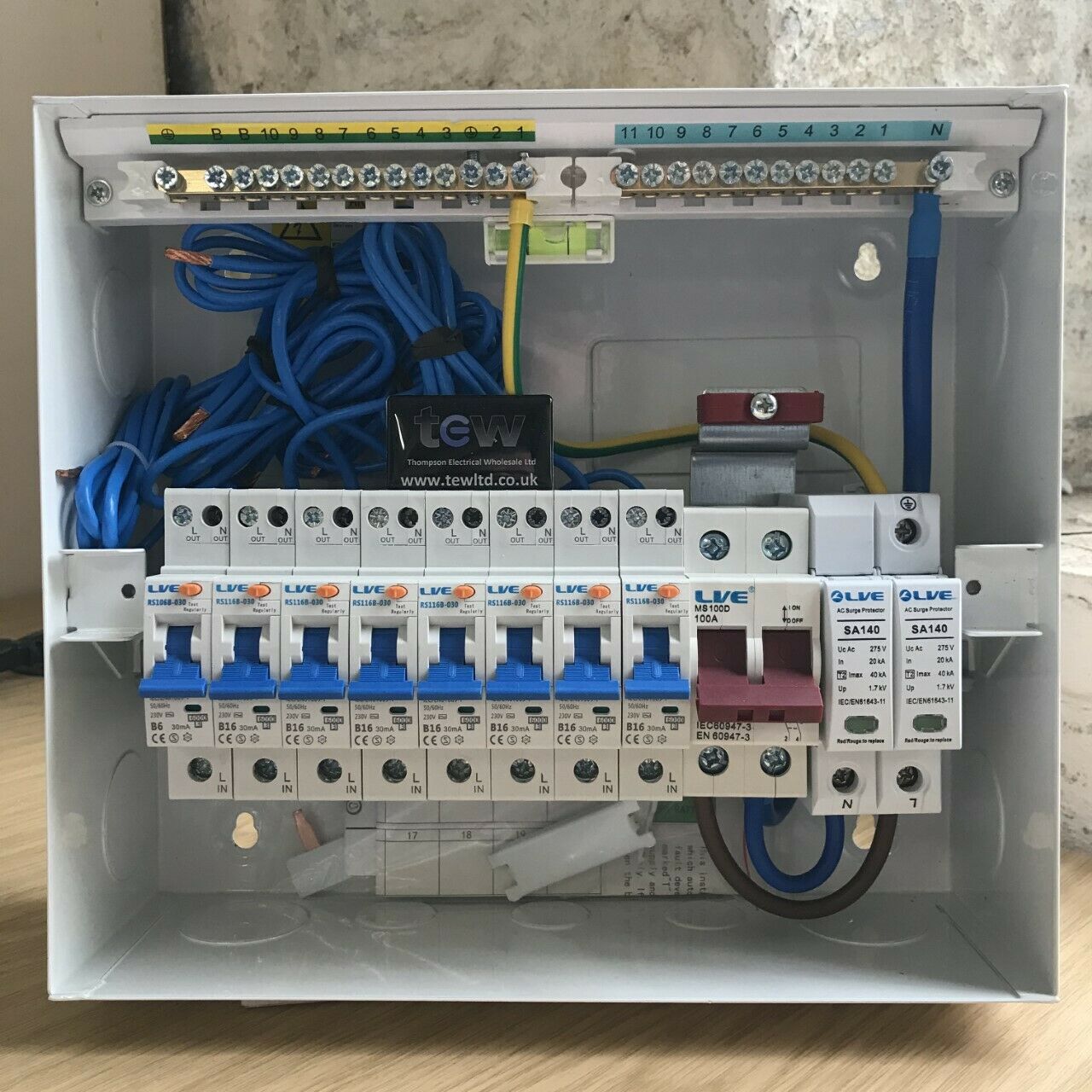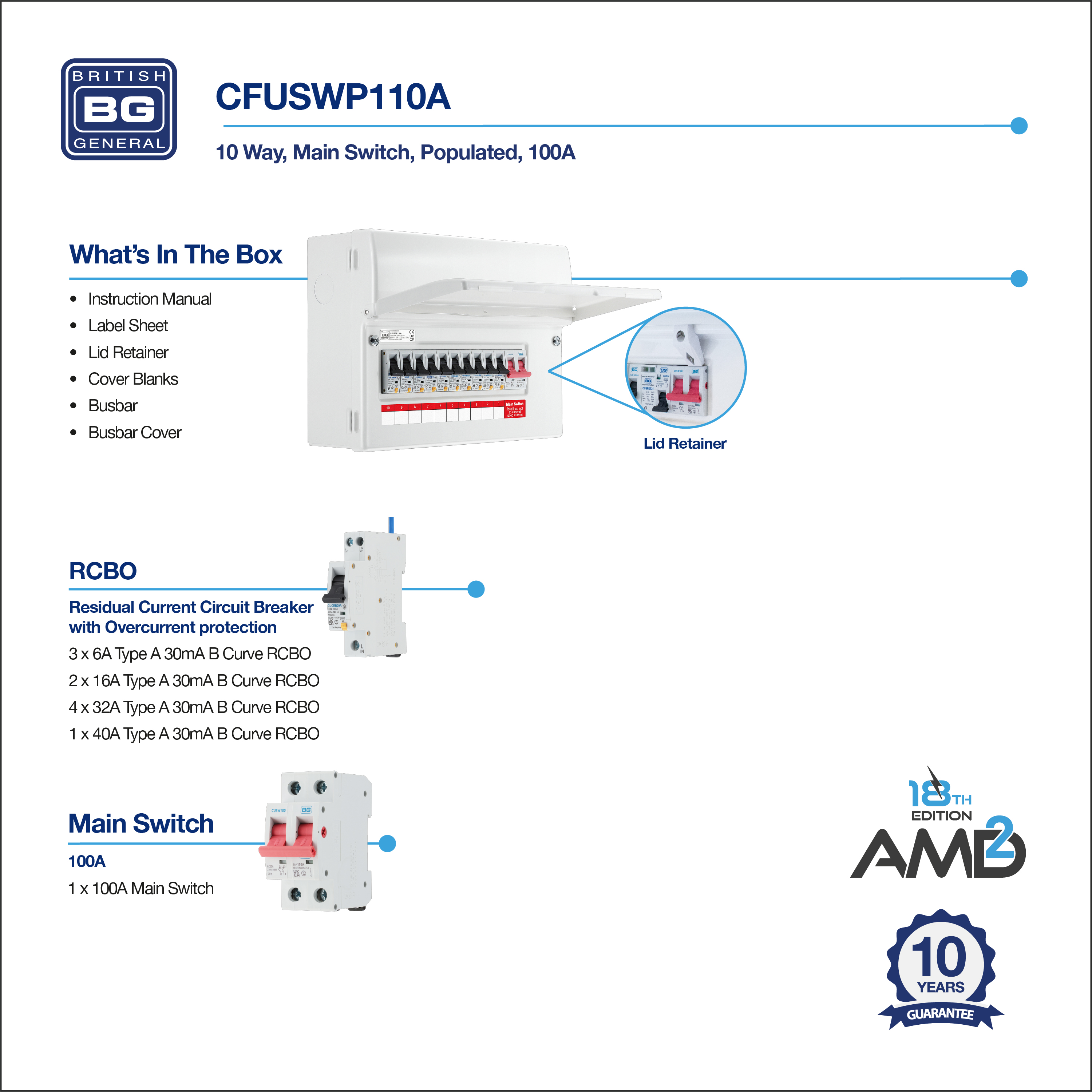The Importance of Upgrading Your Customer Devices for Improved Safety And Security
In today's ever-evolving landscape of electric safety and security, upgrading your consumer units is not just an issue of benefit yet a vital step towards protecting your home. As electrical needs expand and security guidelines tighten, relying on out-of-date units can present significant threats.
Comprehending Consumer Systems
Consumer systems, usually described as fuse boxes or distribution boards, are vital elements in household electric systems. These systems serve as the main center for electrical distribution within a home, guaranteeing that power is effectively and safely dispersed to numerous circuits throughout the home. The primary feature of a consumer unit is to house circuit breakers or fuses that protect electrical circuits from overloads or brief circuits, which can potentially lead to fires or damages to electric appliances.
A common consumer system includes numerous crucial components: a primary switch, numerous circuit breakers, and recurring present gadgets (RCDs) The main switch permits for the entire electric supply to be shut off in instance of an emergency situation. Breaker act as safety devices that automatically reduced off the electric circulation when an overload or fault is found in the circuit. RCDs offer an added layer of safety by finding planet faults and swiftly disconnecting the electrical energy supply, therefore decreasing the danger of electrical shocks.
Recognizing the important duty of customer units is vital for keeping electric safety and security and integrity in properties. Correct installment and routine upkeep of these systems are critical to make certain ideal efficiency and security versus electric threats.
Advantages of Modern Systems
Modern customer systems supply a wide range of advantages that considerably boost electric safety and security and performance in properties. One of the main advantages is the unification of Residual Current Devices (RCDs) and Mini Circuit Breakers (MCBs), which give a higher degree of security against electric mistakes. RCDs are developed to detect and disconnect the circuit in case of a leak present, thereby avoiding electric shocks. MCBs, on the various other hand, deal dependable defense against brief circuits and overloads by instantly shutting down the power supply when faults are spotted.
In addition to safety features, contemporary units likewise improve energy performance. Advanced innovation enables better surveillance and management of electrical lots, minimizing power wastefulness and helping property owners to decrease their utility expenses. They are likewise designed to fit future upgrades, making it less complicated to integrate renewable resource resources such as solar panels right into the home's electrical system.
Moreover, modern-day customer units are constructed to abide with the most recent electric policies and criteria, making sure that setups meet current safety and security requirements. This compliance not only offers comfort however can likewise boost the residential or commercial property's worth and appeal to possible customers.
Identifying Outdated Units
A necessary element of boosting electric security in properties is the recognition of outdated customer units. Recognizing these older units is important as they frequently lack modern safety attributes and can present considerable dangers. Usually, out-of-date customer units can be recognized by their construction products and design. Systems with a wooden backboard, rewireable integrates, or no Residual Current Device (RCD) defense are prime candidates for replacement. These older versions may also include ceramic integrates or a lack of circuit breakers, suggesting they are unqualified current safety and security requirements.

Expert analysis by a certified electrical contractor is advised to accurately determine the problem of a present consumer system. Identifying these outdated systems is the primary step towards making certain a more secure living environment.
Trick Safety Functions
Acknowledging out-of-date customer devices is only the preliminary step; understanding the vital security features of modern devices is essential for making sure a safe electric system. Contemporary customer units are designed with sophisticated security mechanisms to mitigate the dangers of electrical fires, shocks, and other threats. One of the most important features is the Residual Current Tool (RCD), which quickly detaches the circuit if it finds an imbalance, thereby safeguarding against electric shocks and fire dangers.
Additionally, circuit breakers are currently more sophisticated, providing private defense for various circuits. This segmentation not just improves safety and security by separating faults however likewise makes maintenance extra convenient. One more essential function is the Surge Security Tool (SPD), which safeguards devices and the electrical system from voltage spikes brought on by lightning or other electrical abnormalities.
Modern customer units are also developed with non-combustible materials, adding an additional layer of fire resistance. Boosted labeling and modular styles make it easier for electrical experts to carry out upgrades and inspections, guaranteeing long-lasting safety and conformity with present regulations. By integrating these vital safety and security functions, modern-day consumer systems provide durable security, making businesses and homes dramatically much safer.
Picking the Right Upgrade
Choosing the suitable upgrade for your customer unit is a vital decision that straight influences the safety and performance of your electric system. The primary step in this process his response involves examining the specific electrical needs of your home or company. This includes examining the variety of circuits needed, current tons capabilities, and any future development plans. Consulting a qualified electrical expert can supply important understandings tailored to your one-of-a-kind needs.
When selecting an upgrade, prioritize devices furnished with Residual Current Instruments (RCDs) and Mini Circuit Breakers (MCBs) These elements use enhanced security by without delay separating electric circuits throughout mistakes, therefore lessening the danger of electric fires look these up and accidents. In addition, consider selecting Arc Fault Discovery Tools (AFDDs) for included security versus arc faults.

Conclusion
Modern systems outfitted with RCDs and MCBs use superior security versus electrical faults, minimizing the threat of electric shock and fire dangers. Spending in contemporary consumer systems not just enhances security procedures yet also adds worth to the residential or commercial property, lining up with advancing electrical demands and requirements.
The key function of a consumer system is to house circuit breakers or integrates that safeguard electric circuits from overloads or brief circuits, which can possibly lead to fires or damages to electrical appliances.
Modern consumer devices offer a wide range of advantages that significantly enhance electric safety and effectiveness in residential homes.An important element of boosting electric safety and security in household properties is the identification of out-of-date customer devices.Recognizing outdated consumer units top article is just the first action; recognizing the essential security features of contemporary units is crucial for ensuring a secure electrical system. Spending in modern consumer systems not only improves security procedures however likewise includes value to the residential or commercial property, aligning with progressing electric needs and requirements.